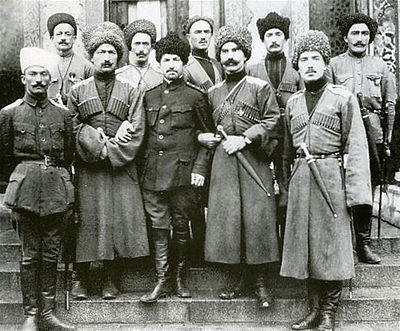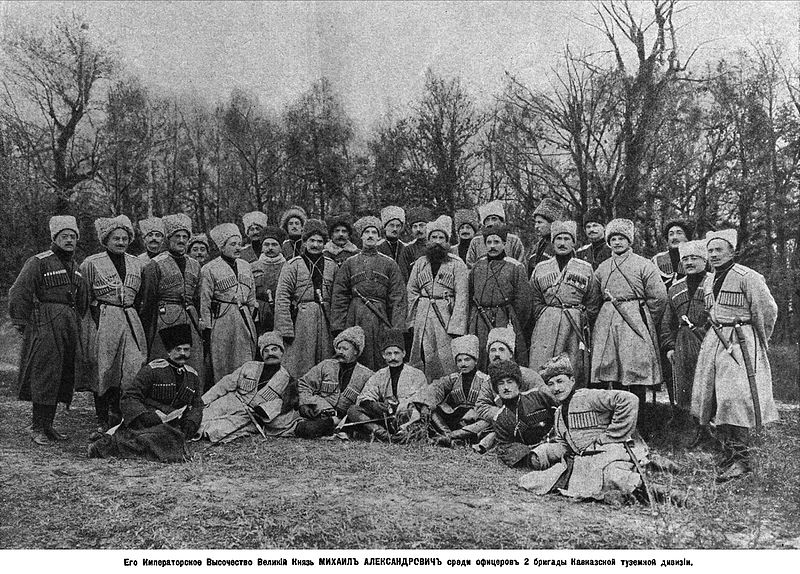
“Wild” Division
The “Wild” Division
(brief historical note)

Officers of the “Wild” Division, 1917
The Caucasian native cavalry division, better known in history as the “Wild” Division, was formed on the basis of the highest decree on August 23, 1914 in the North Caucasus and was staffed by mountaineer volunteers. The division included six regiments of four hundred members: Kabardian, 2nd Dagestan, Chechen, Tatar (from Azerbaijanis), Circassian and Ingush. During the First World War, the Russian army also included the Caucasian cavalry division, five Caucasian Cossack divisions, five Caucasian rifle divisions and the Caucasian grenadier division, which is why the new division was called the Caucasian native cavalry. The younger brother of the tsar, Grand Duke Mikhail Alexandrovich, was appointed commander, and Colonel Yakov Yuzefovich, the Lithuanian Tatar of the Mohammedan religion, who served in the Supreme Commander-in-Chief’s General Headquarters, was appointed chief of staff of the division. The "natives" were distinguished by desperate bravery, terrifying the enemy with their dashing attacks.
The “Wild” Division took part in the Brusilov Offensive (1916), but failed to prove itself seriously there. However, before the start of the general offensive, they contributed to the crossing of the River Dniester. On the night May 30, 1916, the yeasul of the Chechen regiment, Prince Dadiani, with fifty of his 4th hundred, crossed the river near the village of Ivaniye under the fierce rifle and machine-gun fire of the enemy, and captured the bridgehead. As a result, the Chechen, Circassian, Ingush, Tatar regiments, as well as the Zaamursky regiment of the 1st cavalry division managed to cross over the Dniester.
Robbery was commonplace among horsemen, both against prisoners and against the local population, which they also considered to be a conquered enemy. Due to the national-historical features, robbery during the war was considered among the horsemen as military valor, and peaceful peasants very often became their victims. The division commander continuously received complaints "of violence perpetrated by the lower ranks of the division."

Officers of the 2nd brigade with division commander, Grand Prince Mikhail Alexandrovich and commander of the Chechen Equestrian Regiment, Svyatopolk-Mirsky (center)

